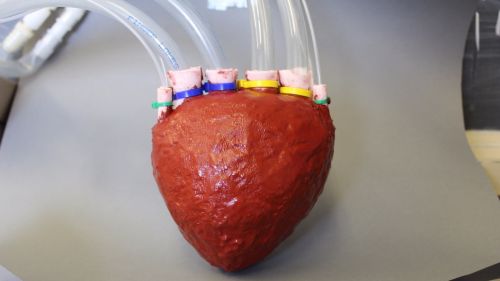Artificial Foam Heart Shows Potential For Future Custom Organ Replacement
Cornell University researchers have developed a new lightweight and stretchable material with the consistency of memory foam that has potential for use in prosthetic body parts, artificial organs and soft robotics. The foam is unique because it can be formed and has connected pores that allow fluids to be pumped through it.
The polymer foam starts as a liquid that can be poured into a mold to create shapes, and because of the pathways for fluids, when air or liquid is pumped through it, the material moves and can change its length by 300 percent.
Read more: Cornell University
– The Future of Medicine
– Regenerative Medicine
– Cyborgization
– Implants
– Prosthetics
– New Materials

| Tweet |










